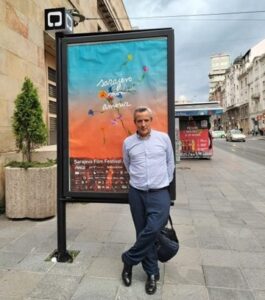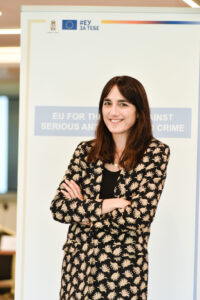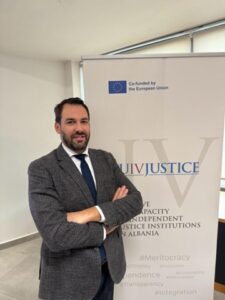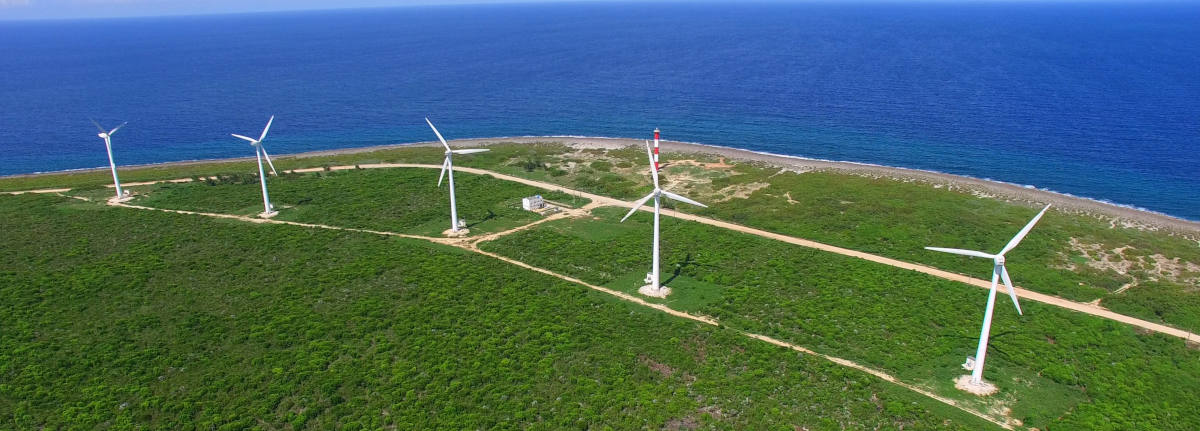-
|
10 January 2024
|Posteado en : Interview
Spanish Justice experts explain how EU-funded cooperation projects in Albania, Bosnia-Herzegovina and Serbia are helping them join the EU club
2024 marks the 20th anniversary of the largest ever accession of countries to the European Union. On 1 May 2004, ten new countries joined the EU club: the islands of Cyprus and Malta along with eight Central and Eastern European countries, ending the post-World War II division of Europe. Over the years, more countries have joined the EU’s borders, although the integration processes are slow and complex, requiring many structural changes in the countries’ societies in order to meet the strict conditions set by the Union as a prerequisite for membership.
With this enlargement policy, the EU seeks to unify European countries around a common political and economic project, while at the same time strengthening its presence on the international stage. However, both sides stand to gain from this process. For the candidate countries, according to EU sources, “enlargements have proved to be one of the most effective tools in promoting political, economic and social reforms, as well as in consolidating peace, stability and democracy across the continent”.
To speed up this process, the EU funds technical cooperation projects in which European specialists exchange their knowledge and experience with specialists from the candidate countries in areas such as security – to fight organised crime gangs, for example – or justice – to curb corruption, among others. In the following lines, we bring together the testimonies of three specialists from Spanish justice institutions who are participating in cooperation projects in Albania, Bosnia and Serbia. They tell us about the historical and social context of these countries, the benefits of accession and the complex processes that are being supported through European projects.
Why are countries like Bosnia, Albania and Serbia interested in joining the EU?
“In the case of Bosnia and Herzegovina, it is a way to set a path towards stability in the area and to overcome the war of the 1990s and put itself on an equal footing with Croatia, which was also part of the former Yugoslavia and is already integrated into the EU. At the same time, it is a way to neutralise the influence of Islamic countries, at least the most radical ones, with respect to the country”, responds Jorge Obach, magistrate of the General Council of the Judiciary (CGPJ) and head of the European project EU4Justice-Bosnia, which supports the fight against organised crime and corruption in Bosnia and Herzegovina (BiH).

Álvaro García, Spanish prosecutor mobilised in the framework of the EU4JUSTICE-Albania project Álvaro García, provincial prosecutor of Córdoba, and Arturo Valdés, magistrate of the CGPJ, both experts mobilised by the FIIAPP in the framework of the European project EU4Justice-Albania, for the improvement of the capacity of independent judicial institutions in Albania, answer our questions on the case of Albania. “For Albania, joining the EU represents an opportunity to strengthen its institutions and improve the quality of life of its citizens through the implementation of political, economic and social reforms. Firstly, EU membership offers access to structural cohesion funds, which can contribute to the country’s economic development. In addition, membership is accompanied by improvements in political stability, security and defence, as well as an increase in democratic and human rights standards”, say experts.
In the case of Serbia, Judge Marta Pizarro, an expert mobilised in the framework of the project financed by the European Union to support Serbia in terms of justice, freedom and security, replies: “The desire to integrate into the European Union emerged in Serbia after the armed conflicts of the 1990s, as a way to improve the quality of life of its citizens and to increase the standards of security, freedom and democracy in the country. Serbia achieved candidate status in 2012, and since then has undergone far-reaching political, legislative and economic reforms. It is arguably one of the most prepared countries in the region for accession negotiations with the EU at the moment.
However, Pizarro warns of a decline in the mood of the Serbian population: “It cannot be ignored that the initial pro-European enthusiasm has given way in Serbia to a growing scepticism, related to the slowness of the process, and to a series of political factors that hinder the country’s position in the European framework, such as the absence of sanctions against Russia or the situation in Kosovo. Therefore, given Serbia’s relevance as a country at the heart of Europe, the EU must also face the challenge of strengthening the pro-European spirit of Serbian citizens”.
What justice challenges do these countries need to address in order to meet European standards?

Magistrate Jorge Obach, mobilised in the framework of the EU4JUSTICE-Bosnia project In the case of BiH, the challenges are to “ensure the independence of the judiciary by avoiding political interference; guarantee the integrity of its members by complying with conflict of interest and asset declaration regulations; and promote the efficiency of the system, especially in investigating and prosecuting cases of corruption and organised crime,” says Obach.
According to García and Valdés, the challenges facing Albania include “the fight against corruption, the improvement of judicial independence and the efficiency of the judicial system, respect for the rule of law and fundamental rights, as well as the effective implementation of anti-crime measures”.
In the case of Serbia, Pizarro notes that these include “addressing the endemic problems of corruption in the country and strengthening the capacity of Serbian institutions to effectively investigate and prosecute organised crime cases and increasing the capacity to recover the proceeds of criminal activity”.
How are the projects supporting this accession?

Senior Judge Marta Pizarro, mobilised in the framework of the EU4JUSTICE-Serbia project In Serbia, says Pizarro, “cooperation is carried out in a cross-cutting manner, involving all actors in the criminal process, from the police to members of the judiciary and prosecutors”. Among other actions, support is being given to Serbian institutions “in the design of legislative modifications to increase the efficiency of the legal and juridical framework, and to promote tools that improve coordination between the police, the prosecution and the judiciary”.
“The EU4Justice-Bosnia project is based on four pillars: ensuring the efficiency of the system, through activities carried out by Spanish specialists in which comparative analyses between EU and neighbouring countries have been provided; guaranteeing integrity, with actions aimed at ensuring the declaration of assets; promoting compliance with the regulation of conflicts of interest, with the participation of Spanish specialists in judicial ethics; and strengthening the quality and efficiency in the way of investigating and judging, especially in corruption cases, by providing specialised training”, says the magistrate posted to BiH.
In the case of Albania, Valdés and García explain that this is being done “through the training of civil servants, the exchange of best practices, the development of institutional capacities and economic support to implement reforms”.
What successful experiences of Spain’s EU accession process could be relevant for these countries?

Spanish Magistrate Arturo Valdés, mobilised in the framework of the EU4JUSTICE-Albania project “The process of Spain’s accession to the EU accelerated the democratisation of the country, brought great social welfare, and strengthened the rule of law,” says Pizarro. “Already then, the foundations were laid for the creation of solid structures, which made it possible to progressively tackle the fight against corruption and organised crime in an efficient manner. In fact, the strength of the rule of law in Spain is highly valued by Serbian institutions as a relevant learning model”.
“It is very difficult to translate Spain’s pre-1985 status quo to present-day BiH. Spain’s success probably lay in the strength of its public administration being able (and willing) to absorb European regulation, with a quick adaptation of both internal regulations and procedures, as well as a good public awareness campaign on the advantages of EU membership. And probably because there was no other alternative,” says Justice Obach.
According to García and Valdés, some important lessons are “the importance of addressing structural reforms at the institutional and legal level, the need to promote political and social stability, as well as the commitment to the implementation of EU policies and regulations. The Spanish experience could inspire Albania to work on consolidating democracy, improving the rule of law and modernising its institutions”.
Why is international cooperation between public institutions relevant in this area?
In Obach’s view, “this is the only way to carry out any project, whatever the subject matter, effectively in any country. Only by sharing knowledge between the different public institutions and collaborating in accordance with the competences of each of them can an optimal result be achieved.
According to Valdés, “the EU seeks to ensure that candidate countries have transparent, independent and efficient judicial systems. Co-operation with public institutions in other countries facilitates the exchange of knowledge, best practices and experiences. Moreover, this collaboration, especially in areas such as justice, contributes to strengthening institutional capacity and ensuring the consistent application of European standards in the judicial and legal field”.
Judge Pizarro adds that “it cannot be overlooked that international cooperation between public institutions is fundamental to address critical issues such as the effectiveness of the fight against organised crime, given its cross-border and global nature“.
-
|
31 August 2022
|Posteado en : Interview
Analysing and evaluating the results of public technical cooperation is a basic pillar for the correct development of any cooperation action. This is the commitment that is made at the beginning, during and at the end of a project: it is not only an obligation as part of our public sector, but it is also an exercise in responsibility to evaluate the effectiveness of aid
We talk about this with Mario Germán Sánchez González, expert in monitoring and evaluation of cooperation programmes and project technician in the area of Justice and Rule of Law at the FIIAPP.
Why is it so important to measure results in public technical cooperation for development?
There is a global consensus outlined for sustainable development, to which all cooperation actions must respond and contribute, seeking to increase the impact on the reduction of poverty and inequality and the improvement of public systems. In this field, defined, measurable and traceable results are a necessary starting and finishing point to achieve the desired impact.
We are talking about aid effectiveness and the commitments and progress of states in this area, but we are also talking about carrying out an exercise of responsibility in technical action and in the investment of the economic resources with which it is financed.
What is the importance of results in European cooperation?
Results orientation in cooperation programmes has become a hallmark of European cooperation. The European Union’s major regional programmes have been an example of progress in this area. The Directorate-General for International Partnerships is increasingly demanding the application of the results approach in programmes and projects.
Along these lines, in 2015 the European Union created the European Union International Cooperation and Development Results Framework (EURF) to align the results sought and financed by European cooperation with the 2030 Agenda.
Furthermore, in January 2022, a new revision has taken place in which the known results framework is renamed the Global Europe Results Framework (GERF), which seeks to align with the 2020-2024 Strategic Plans of DGs INTPA, NEAR and FPI that were developed under the policy priority of a ‘Europe Stronger in the World’.
How do the results relate to the Development Assistance Committee (DAC) evaluation criteria?
The results, understood as guiding intervention guidelines, have a direct relationship with DAC evaluation criteria that are used to monitor and evaluate interventions.
The results of the intervention, in their different stages, are the object and content of the evaluation criteria, whose report tells us, among other things, about the degrees of achievement, contribution and/or attribution of the results, their relevance, pertinence, coherence and impact.
What challenges and opportunities exist for the effective implementation of the results approach in cooperation?
The main challenge, but at the same time an opportunity, is to be convinced that it can and should be applied throughout the project cycle, starting with the formulation itself.
It is a challenge because it requires a proper understanding of the results chain and its different links. At the same time, it is an opportunity, because it is an instrument we work with every day in cooperation projects, and if used correctly, it can lead not only to coherence, but also to the effectiveness of the intervention.
-
|
07 October 2021
|Posteado en : Opinion
"The FIIAPP should constitute its vision of digitisation with a human approach, without digitisation being conceived as an end in itself, but as a lever for more and better help to citizens."
In the 21st century, digital technologies are profoundly changing societies, everyday life and working practices. All of this gained momentum as a response to the Coronavirus (Covid-19) crisis, which highlighted the need to increase the coordination of international efforts, both to take advantage of the benefits of the digital age and to manage any obstacles to obtaining them.
In this sense, the European Union has embarked on a path for a green, just and digital transition in such a way that the European Green Deal and the responses to the health crisis have been linked to sustainability and digitisation. The goal is to shape digital economies that put people first, protect the fundamental rights of citizens and offer equal opportunities to all. For its part, Spain has legislated to accelerate processes from the portfolios of the Ecological Transition and Digitisation and Artificial Intelligence.
The European Commission’s main response in the digital sector was the launch of the D4D Hub, (Digitisation for Development Hub), which ushered in a new era for global cooperation on digital development. The D4D Hub implements the “2030 Digital Compass: the European way for the Digital Decade” with a Digital4Development approach, this new vision aims to promote new international partnerships in the field of digital transformation such as #TeamEurope.
Spain is one of the 11 Member States that are part of the D4D Hub and the FIIAPP, as a public state Foundation for Spanish and European cooperation, has been an active member of the different Hub commissions during the last year. The D4D Hub brings together European Member States and implementing agencies, the EC, the European Investment Bank and European financial institutions, civil society organisations, academia and private sector partners. The Hub aims to establish strategic digital partnerships and promote joint investments between Europe and partner countries around the world that contribute to reducing digital divides, including the digital gender divide, ensuring a human rights-based approach to sustainable development.
Digitisation with a human approach
However, the FIIAPP should constitute its vision of digitisation with a human approach. That is to say, without digitisation being conceived as an end in itself, but as a lever for more and better help to citizens.” Digitisation will transform and increase our impact on the Sustainable Development Goals (SDGs)¹ and our actions in the projects in which we participate. Our main task will be to connect up the different actors in the sector to stimulate knowledge sharing and create innovative partnerships to “Put people first”. The D4D strategy must be in line with Spanish Cooperation and all its actors and in close cooperation with our international partners, the European Commission, other EU Member States, multilateral organisations, development banks, etc.
 Given that digitisation creates both opportunities and challenges that transcend borders, international cooperation is a key dimension to make the most of digital transformation at the local, national and international levels. At FIIAPP, we use digital tools and understand that they can provide States with new capabilities and make them more credible, inclusive, efficient and innovative. However, the digital transformation also brings risks for inclusive development, increasing disparities between and within countries, widening digital divides, the automation of jobs, and security and privacy concerns. Hence the importance of putting people first in the development of digitisation.
Given that digitisation creates both opportunities and challenges that transcend borders, international cooperation is a key dimension to make the most of digital transformation at the local, national and international levels. At FIIAPP, we use digital tools and understand that they can provide States with new capabilities and make them more credible, inclusive, efficient and innovative. However, the digital transformation also brings risks for inclusive development, increasing disparities between and within countries, widening digital divides, the automation of jobs, and security and privacy concerns. Hence the importance of putting people first in the development of digitisation. Digitisation can play an important role in all sectors in which FIIAPP operates. This includes health, education, agriculture and food security, basic infrastructures, water and sanitation, governance, social protection, financial services and others. It can also contribute to cross-cutting objectives on gender and the environment. Through the Economic Development and Environment area, a Digitisation Strategy is being built and is actively contributing to the constitution of the Latin America D4D Hub.
Let’s start this new digital and sustainable path by improving public systems for people and the planet.
Alba Rodríguez Díaz, Project Technician, Economic Development and Environment Area.
—
¹ The 2030 Agenda for Sustainable Development underlines the importance of information and communication technologies in developing countries as powerful facilitators of growth. Reference to ICTs can be found explicitly as a target in SDG 9 “Build resilient infrastructures, promote inclusive and sustainable industrialisation and foster innovation”, while ICTs are also mentioned in targets related to climate change (SDG 13 , 14 and 15), gender equality and the empowerment of women (SDG 5), private sector development (SDG 8), education (SDG 4) and health (SDG 3).
-
|
23 April 2021
|Posteado en : Reportage
Although it is now common for several countries to jointly face global challenges, this is a relatively new phenomenon. The first commitment to multilateralism can be found just a century ago, in 1919, with the creation of the League of Nations. This first attempt was not very successful and demonstrated the difficulties that can arise when national interests have to be set aside for a greater cause.
During the last few decades the geopolitical scene has undergone major transformations such as a shift in the centres of power towards Asia and the Pacific, the loss of US hegemony, the appearance of new actors and the questioning of international institutions such as the WHO, the OECD and the IMF. We live in a time of fragmentation and volatility in which nationalism, individualism and mistrust challenge progress towards a more interconnected, global and united world. This makes it essential that actors such as the UN, the European Union and the states themselves reinforce their commitment to multilateralism in order to face the challenges of the present and the future. Starting with the recovery from a global pandemic that has reminded us of the importance of globalisation and the need to regulate global challenges.
The UN has been committed to multilateralism for 75 years. A clear example of this commitment is the 2030 Agenda and the Sustainable Development Goals (SDG). These common objectives, to which all UN member countries have committed themselves, address complex issues that transcend borders such as climate change, the eradication of poverty and reducing inequality.
Among all the SDGs, number 17 “Alliances to Achieve the Goals” is, perhaps, the most relevant. Despite being the last on the list, it is essential for achieving the other goals. International alliances and multilateralism are the basis for guaranteeing a joint response to challenges that are insurmountable at the national level.
As the most advanced integration process at the global level, the European Union is one of the actors most committed to multilateralism and to strengthening international alliances. Earlier this year, the European Commission presented a new strategy to strengthen the EU’s contribution to multilateralism based on universal norms and values.
In this strategy, the European Union establishes dialogue, multilateral governance and international cooperation as essential strategic priorities to ensure a safer world and a sustainable and inclusive global recovery. The European Union is clear that cooperation and joint work as Team Europe is the only possible way.
The European Union’s commitment to multilateralism is strongly supported by Spain. The External Action Strategy 2021-2024 presented at the end of January includes regional integration and the reinforcement of multilateralism as one of its four substantive strands. Spain has the determined will to contribute to improving global governance mechanisms by supporting integration processes and promoting a more integrated, effective and reinforced multilateralism.
Both the European Union and Spain include international cooperation as a fundamental tool for achieving these objectives. FIIAPP is working via public technical cooperation to accompany public policy reform processes, but also to generate spaces of trust and alliances between administrations.
Through the regional programmes in which the Foundation participates, harmonised responses are being generated in the face of shared challenges. This generates common standards, policies and values and encourages rapprochement in international forums in favour of multilateral governance and sustainable development which benefits citizens.
FIIAPP is firmly committed to multilateralism, dialogue and joint work between actors from around the world. Public technical cooperation offers public institutions the opportunity to foster dialogue and the exchange of experiences, as well as to consolidate not only relationships but also shared links with citizens around the world.
-
|
05 March 2021
|Posteado en : Reportage
After decades of energy inefficiency, technological innovations have led to some enormous improvements in the responsible use of energy. However, the pressing need to curb climate change requires more efforts in this area.
Energy efficiency means optimising the use of resources to produce energy. As well as consuming fewer resources, it means reducing emissions. This is essential to gradual decarbonisation and to keep the increase in the planet’s temperature to a maximum of 1.5ºC. Companies and individuals have become more acutely aware of the finite nature of fossil fuels, their increasing cost and their environmental impact.
The international community made a global commitment in the 2015 Paris Agreement and the 2030 Agenda. The goal for 2030 is to ensure that everybody has access to electricity and to increase energy efficiency and the use of renewable sources of energy.
This general objective is specified in two of the 17 Sustainable Development Goals (SDGs). Among the aims of SDG7 “Affordable and clean energy” is to double the global rate of improvement in energy efficiency from 2015 to 2030. As the UN Energy Progress Report points out, although things are improving, there is still much to be done. SDG11 “Sustainable cities and communities” also warns of the concentration of the population in cities and the need to develop adequate, energy efficient urban infrastructures.

To this end, in 2012 the European Union enacted a series of binding measures to promote energy efficiency with Directive 2012/27 / EU. In 2020, under the European Green Deal, the European Union committed to a more demanding objective of improving energy efficiency from 20% to 32.5% compared to 1990 levels.
With the 2030 Agenda and with European and Spanish cooperation as its point of reference, FIIAPP has been working on cooperation projects with public administrations around the world for more than 20 years. With the maxim of benefiting citizens, several of the projects implemented by the Foundation have included the promotion of public policies to foster energy efficiency among their objectives.
For example, under the EUROCLIMA + cooperation programme, we are currently working in collaboration with Paraguay to promote clean technologies and energy efficiency. As part of the “Promotion of the Efficient Use of Biomass in Paraguay” action, the Vice Ministry of Mines and Energy and the Ministry of Environment and Sustainable Development (MADES) are receiving support to develop a calculation tool for SMEs to carry out self-diagnosis of energy consumption and identify potential savings points.
In the field of Public Technical Cooperation, the team is working to design and run a national dissemination campaign targeting the agro-industrial sector. The purpose of this campaign is to instil the concept of energy efficiency and its benefits in economic, social and environmental aspects in the productive sector.
FIIAPP also works closely on energy efficiency matters with Cuban public bodies. Cuba has launched a new roadmap for the country to gradually incorporate renewable energy sources and work on energy efficiency. The aim is that by 2030 at least 24% of the energy generated will be renewable with better efficiency. This would mean saving 1.73 million tons of fuel per year and avoid releasing 6 million tons of CO2 emissions into the atmosphere.
One of the actions of the Cuba-EU II Expert Exchange programme aims to improve energy efficiency in the Cuban hospitality sector. Three specialists from the Refrigeration and Air Conditioning Institute (IRC) are taking part in a Master’s Degree in Energy Conversion Systems and Technologies, at the Rovira y Virgilio University in Tarragona.
Alexander Maura is working on his thesis on solar energy-based conversion systems in a hotel in an isolated area that generates its own electricity using fossil fuels, Ricardo Domínguez’s thesis explores the use of biogas for refrigeration and air conditioning purposes of a pig farm while Carlos Luis Izquierdo is designing a grid-connected photovoltaic system at IRC to boost renewable energy and reduce emissions.

‘Cuba Renovables’ is another of the projects managed by FIIAPP to promote energy efficiency among Cuban institutions. The project is part of the “Cuba Energy Support Programme”, implemented through a programme of cooperation between the EU and Cuba. Its aim is to contribute to the effective implementation of the ‘Policy for the prospective development of renewable energy sources and energy efficiency’ in Cuba and its regulatory framework.
The project supports the new national policy promote rational use of energy by reducing consumption and increasing savings. Cuban institutions have already launched different awareness campaigns for the population. Companies also play an important role and work is being done to promote the production of equipment for private and industrial use that is more efficient in saving energy.
These projects are an example of the effort of the international community, the European Union and Spain to offer joint responses through cooperation to global problems such as climate change. With the 2030 Agenda, the SDGs and the European Development Consensus as a guide, FIIAPP encourages public institutions to share their experience, steering them to generate results, forge relationships of trust and strengthen values in societies.
-
|
25 February 2021
|Posteado en : Interview
In this interview, José R. Rojo Rodríguez, General Director of the Institute of Refrigeration and Air Conditioning of Cuba, tells us about the importance of the IRC and the cooperation work which they have been carrying out together with the EU-Cuba Facility for Expertise Exchanges II, funded by the European Union and managed by FIIAPP
What is the Institute of Refrigeration and Air Conditioning?
The Institute of Refrigeration and Air Conditioning (IRC) is a national reference centre for the refrigeration sector in Cuba. Our corporate purpose is to provide scientific-technological services, conducting applied research in matters of refrigeration, air conditioning and ventilation.
We have more than 40 years of experience providing specialised solutions in these areas, with a highly qualified professional staff that carries out projects that range from the project itself to the supplying and provision of specialised technical assistance, called “turnkey projects”.
What are your main areas of work?
Our main activity consists of services for science and technological innovation works, in the national territory and abroad, technical assistance, feasibility studies, surveys, diagnoses, knowledge management and technological management by applying new technologies. We also carry out tests on refrigeration and air conditioning equipment, to certify its quality and verify its energy efficiency, both for national and foreign legal entities, provided that the latter are domiciled, established or authorised to operate in the country.
At IRC we also organise training sessions, technical events, seminars and conferences on refrigeration, air conditioning and ventilation, and we carry out standardisation work, such as: development of quality specification standards, technical requirements and energy consumption rates and technological processes within these specialist areas, as well as marketing raw materials and idle materials.
Which IRC jobs would you highlight due to their relevance to energy efficiency in Cuba?
At IRC, we have experience in developing turnkey projects for refrigeration facilities for different products and in different locations in Cuba, among which are the following: the Frigorífico San Pedrito with three freezing tunnels, the Contramaestre refrigerator for citrus fruits, the refrigerator of the Mariel Special Development Zone and the Camarones de Guajaca processing plant.
We also have laboratories that certify the quality of the refrigeration and air conditioning equipment that Cuba produces or imports and we run several specialised courses in refrigeration and air conditioning that can also be taught online through the GESTA virtual platform, the Centre for Business Management, Technical and Administrative Achievement of the Ministry of Industries of Cuba.
How is the EU-Cuba Facility for Expertise Exchanges II Programme supporting this issue? Could you mention some specific activities?
IRC’s participation in the programme has enabled us to deepen our expertise along the lines of energy efficiency and the use of all residual energy sources. This has already made it possible to work on reducing energy consumption in facilities belonging to several organisations. Likewise, this experience and the knowledge acquired has multiplied and has reached more people through the courses given by our centre to all the personnel interested in these topics.
Support for the programme has been very important for us in facilitating the participation of 3 IRC specialists on a Master’s Degree in Energy Conversion Systems and Technologies, at the Rovira y Virgilio University of Tarragona, Spain, which has allowed us to raise the scientific level of our specialists. They are already preparing their final Master’s theses, which have also been linked to the issues we are working on with the EU-Cuba Facility for Expertise Exchanges II Programme.
Within the framework of the Programme and in relation to this Master’s Degree, what results do you hope to obtain from this training?
The participation of our specialists on the Master’s Degree will allow us to open new lines of work that will influence the use of residual energies to protect the environment and expand the use of renewable energies in refrigeration and air conditioning in our country.






